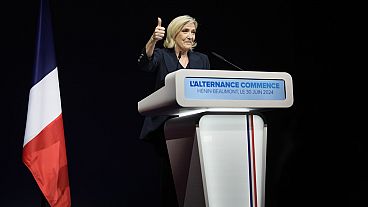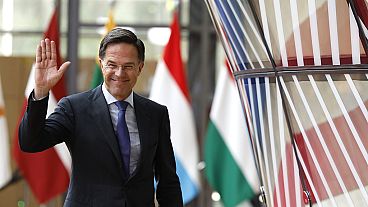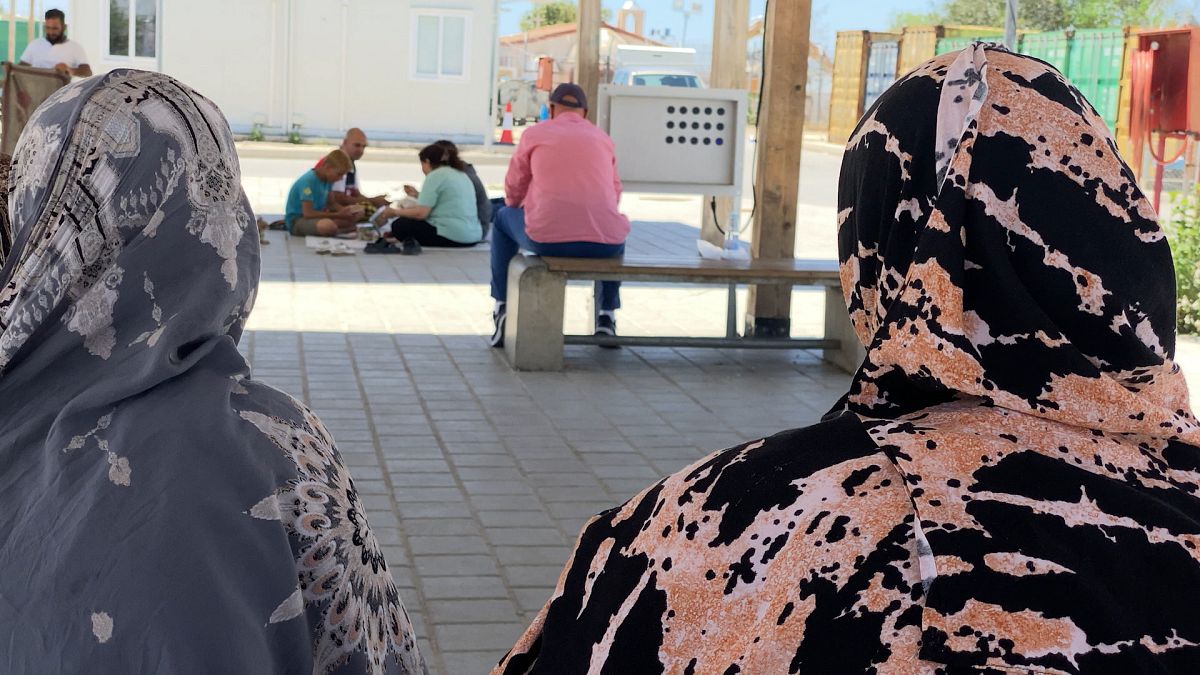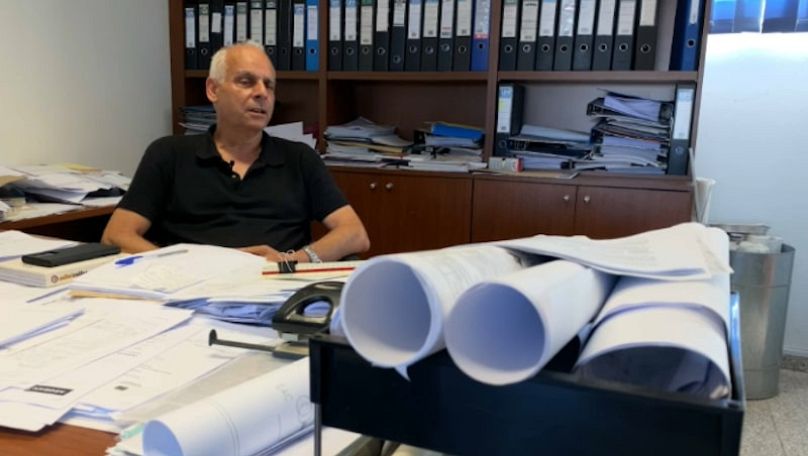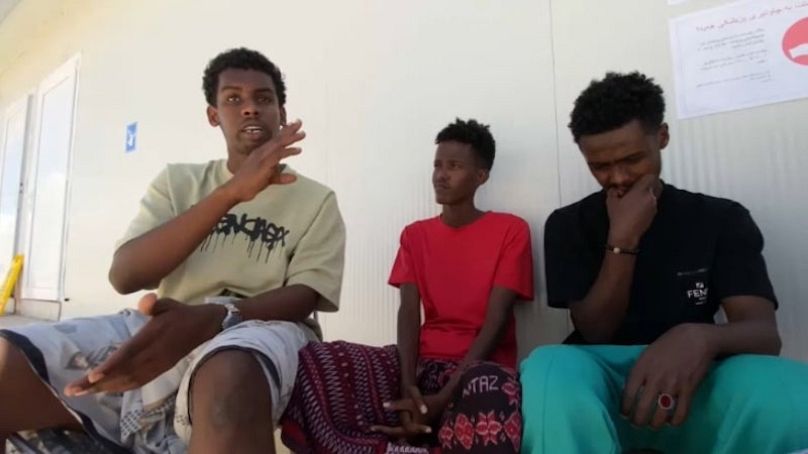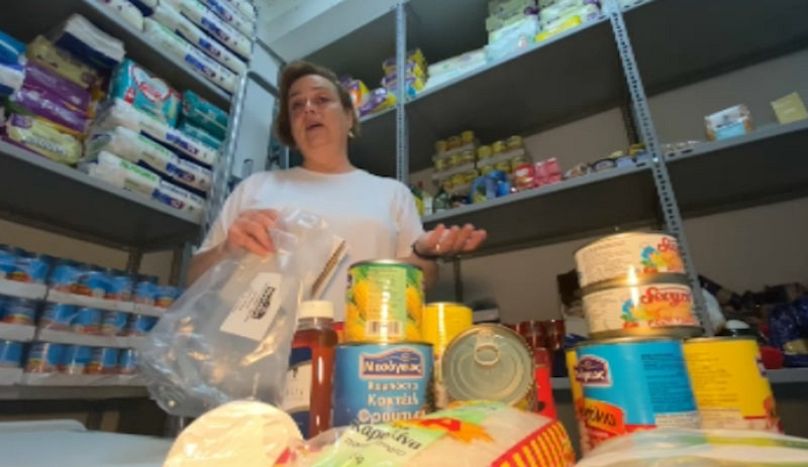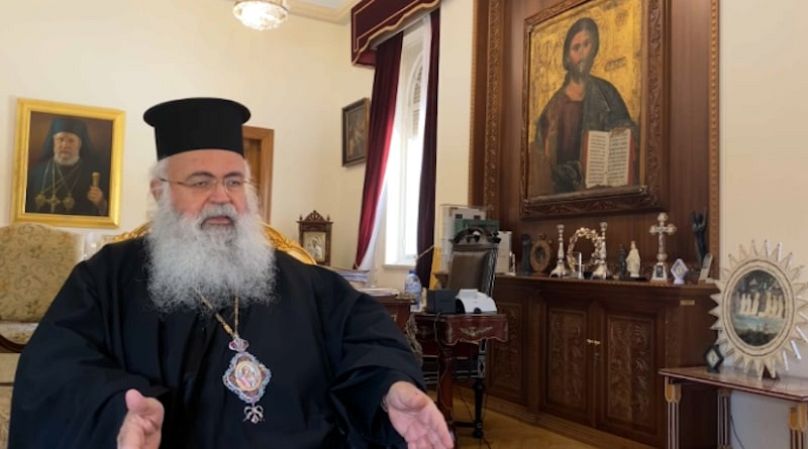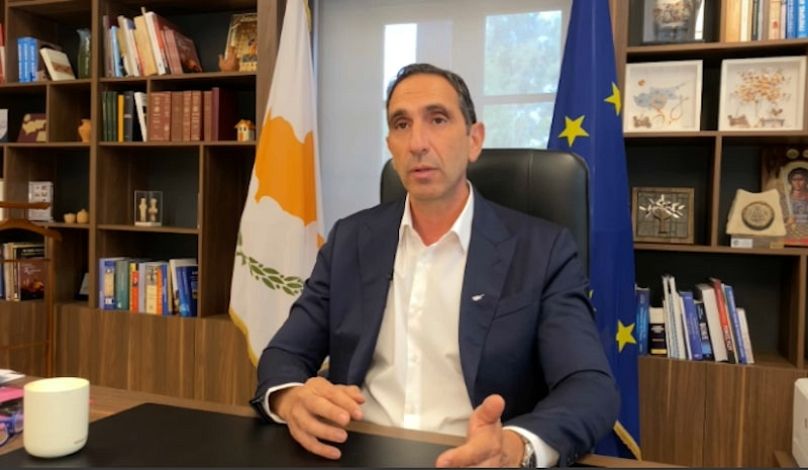Their massive arrival, especially until spring, has motivated a heated debate about the limits of reception in the country. Euronews Witness travelled there to listen to very different points of views.
Many in Cyprus fear that the arrival of mostly Muslim migrants poses not only socio-economic and security issues, but also an identity, demographic and even an existential threat to the country, whose North has been occupied by the Turkish army since 1974.
"Cyprus population is about 800,000 people. If we have 250,000 foreign people here, it means that 25% or 30% are foreigners. If we cannot tell them to go away because of the European Union policies, it means that in a year period of time, as they will bring their wives and kids, they are going to be more than a million. We would be turning to a Lebanon. We want to stay Greek Cypriots here in Cyprus", said Christakis Meleties, Head of Kokkinotrimithia Local Council.
'Someone dead every day'
The Council is near Pournara First Reception Centre, the place that shelters immigrants as soon as they arrive at the Republic of Cyprus.
"Every day you hear... someone dead. Someone killed. Someone dead. Someone killed. Someone had a bomb. I left that to get rights and peace, and freedom. I have dreams. I have a future", said an 18-year-old asylum seeker who fled from Yemen.
Asylum seekers with appliable claims are then sent to a second camp in the southern village of Kofinou. Around 800 residents currently get housing, food, education, medicines, pocket money and can freely go out for the day.
As a response to the recent massive arrivals of Syrians, the camp is being enlarged. The government also paused for 14 months the examination of all asylum applications from Syrian citizens.
Once out of the camp, asylum seekers get a monthly allowance and are encouraged to integrate.
No jobs allowed for new arrivals
But, in a bid to prevent further influx, the government forbids them from seeking work for 9 months after their arrival. Without legal jobs or family networks, many rely on charity centres for getting clothes or school material.
"Everyone assumes that because most migrants have cellphones and smartphones and there's a lot of information that they know everything, but they don't, because the smugglers or people along the way will give them bad information, including the idea that if you have a child in Cyprus or in the European Union, that child is automatically granted EU either residency or citizenship, and this is not the case”, explains Elizabeth V. Kassini, Executive manager at Caritas Cyprus.
Also, a religious problem
The Orthodox Church of Cyprus has a very clear point of view on immigration. It accuses Turkey of trying to alter the country's demographics.
”The majority of them (asylum seekers) have another religion. This also affects our society. It is also the fact that we are a place with quite a few problems already, and we cannot be burdened with such a large percentage of foreign people coming here”, said Archbishop Georgios, spiritual leader at the Orthodox Church of Cyprus.
Under pressure from the Church, the far-right and growing social discontent, the government is trying to increase voluntary returns. Cyprus is the EU's 4th top country in these types of departures, says the country's Interior Minister.
He now wants to press ahead: “We strongly believe that we should combat illegal migration, because we think that member states should decide -under international law- who is going to cross their borders, and not smuggling groups and traffickers", explained Konstantinos Ioannou.
Official figures show that up to 96% of asylum applications will eventually be refused.

